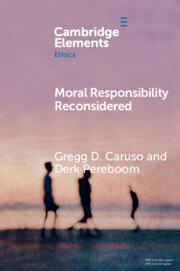1 results

Moral Responsibility Reconsidered
-
- Published online:
- 10 November 2022
- Print publication:
- 01 December 2022
-
- Element
- Export citation

